Shootin’ Bloody MiGs out of the sky!...
.
.
.
Origins :
North American Aviation had produced the propeller-powered P-51 Mustang in World War II, which saw combat against some of the first operational jet fighters. By late 1944, North American proposed its first jet fighter to the U.S. Navy, which became the FJ-1 Fury. It was an unexceptional transitional jet fighter that had a straight wing derived from the P-51.[3][4] Initial proposals to meet a United States Army Air Forces (USAAF) requirement for a medium-range, single-seat, high-altitude, jet-powered day escort fighter/fighter bomber were drafted in mid-1944.[5] In early 1945, North American Aviation submitted four designs.[5] The USAAF selected one design over the others, and granted North American a contract to build three examples of the XP-86 ("experimental pursuit"). Deleting specific requirements from the FJ-1 Fury, coupled with other modifications, allowed the XP-86 to be lighter and considerably faster than the Fury, with an estimated top speed of 582 mph (937 km/h), versus the Fury's 547 mph (880 km/h).[5] Despite the gain in speed, early studies revealed the XP-86 would have the same performance as its rivals, the XP-80 and XP-84. Because these rival designs were more advanced in their development stages, it was feared that the XP-86 would be cancelled.
Crucially, the XP-86 was not able to meet the required top speed of 600 mph (970 km/h);[6] North American had to quickly devise a radical change that could leapfrog its rivals. The North American F-86 Sabre was the first American aircraft to take advantage of flight research data seized from the German aerodynamicists at the end of World War II.[7] These data showed that a thin, swept wing could greatly reduce drag and delay compressibility problems that had bedeviled fighters such as the Lockheed P-38 Lightning when approaching the speed of sound. By 1944, German engineers and designers had established the benefits of swept wings based on experimental designs dating back to 1940. Study of the data showed that a swept wing would solve their speed problem, while a slat on the wing's leading edge that extended at low speeds would enhance low-speed stability.
Because development of the XP-86 had reached an advanced stage, the idea of changing the sweep of the wing was met with resistance from some senior North American staff. Despite stiff opposition, after good results were obtained in wind tunnel tests, the swept-wing concept was eventually adopted. Performance requirements were met by incorporating a 35° swept-back wing, using modified NACA four-digit airfoils, NACA 0009.5–64 at the root and NACA 0008.5–64 at the tip,[8] with an automatic slat design based on that of the Messerschmitt Me 262 and an electrically adjustable stabilizer, another feature of the Me 262A.[9][10][11] Many Sabres had the "6–3 wing" (a fixed leading edge with a 6-inch extended chord at the root and a 3-inch extended chord at the tip) retrofitted after combat experience was gained in Korea.[9][12] This modification changed the wing airfoils to the NACA 0009-64 mod at the root and the NACA 0008.1–64 mod at the tip.[8]
The XP-86 prototype, which led to the F-86 Sabre, was rolled out on 8 August 1947.[13] The first flight occurred on 1 October 1947 with George Welch at the controls,[14] flying from Muroc Dry Lake (now Edwards AFB), California.[7][13]
The United States Air Force's Strategic Air Command had F-86 Sabres in service from 1949 through 1950. The F-86s were assigned to the 22nd Bomb Wing, the 1st Fighter Wing, and the 1st Fighter Interceptor Wing.[15] The F-86 was the primary U.S. air combat fighter during the Korean War, with significant numbers of the first three production models seeing combat.
The F-86 Sabre was also produced under license by Canadair, Ltd, as the Canadair Sabre. The final variant of the Canadian Sabre, the Mark 6, is generally rated as having the highest capabilities of any Sabre version.
Source : Wikipedia
.
.
.
.
.
.
.
CONTROLS :
-AG1 + VTOL Up : Retract Landing Gear
-AG2 : Activate Guns
-AG3 : Jettison (Drop) External Fuel Tank
-AG4 + Brake : Activate Airbrakes
.
.
.
.
If you like My Creation pls Upvote it, Hehe... 😸😸
.
FU-711 Inspiration of this plane, tho the tail is not exact same
.
.
THX!!!....
Specifications
Spotlights
- ACEPILOT109 4.1 years ago
- Moonraker 4.1 years ago
General Characteristics
- Created On iOS
- Wingspan 46.3ft (14.1m)
- Length 41.7ft (12.7m)
- Height 15.9ft (4.9m)
- Empty Weight 5,925lbs (2,687kg)
- Loaded Weight 8,001lbs (3,629kg)
Performance
- Power/Weight Ratio 0.842
- Wing Loading 47.4lbs/ft2 (231.5kg/m2)
- Wing Area 168.8ft2 (15.7m2)
- Drag Points 6234
Parts
- Number of Parts 211
- Control Surfaces 5
- Performance Cost 733

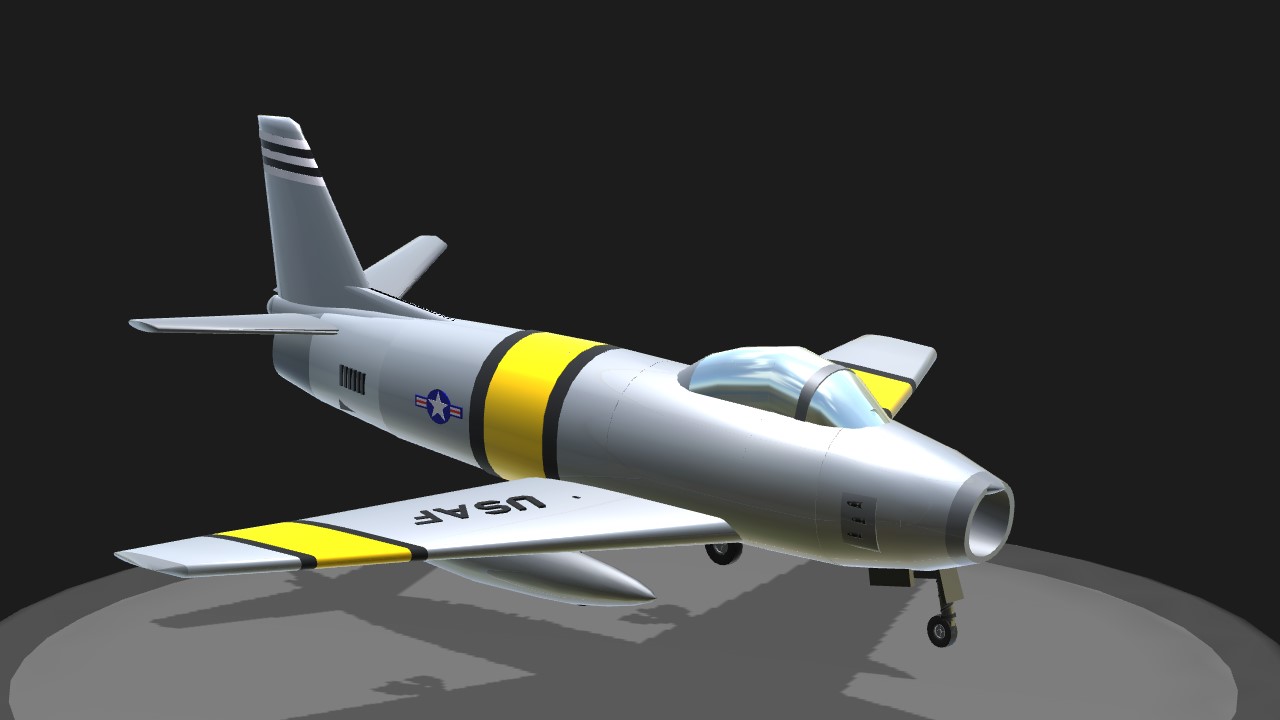
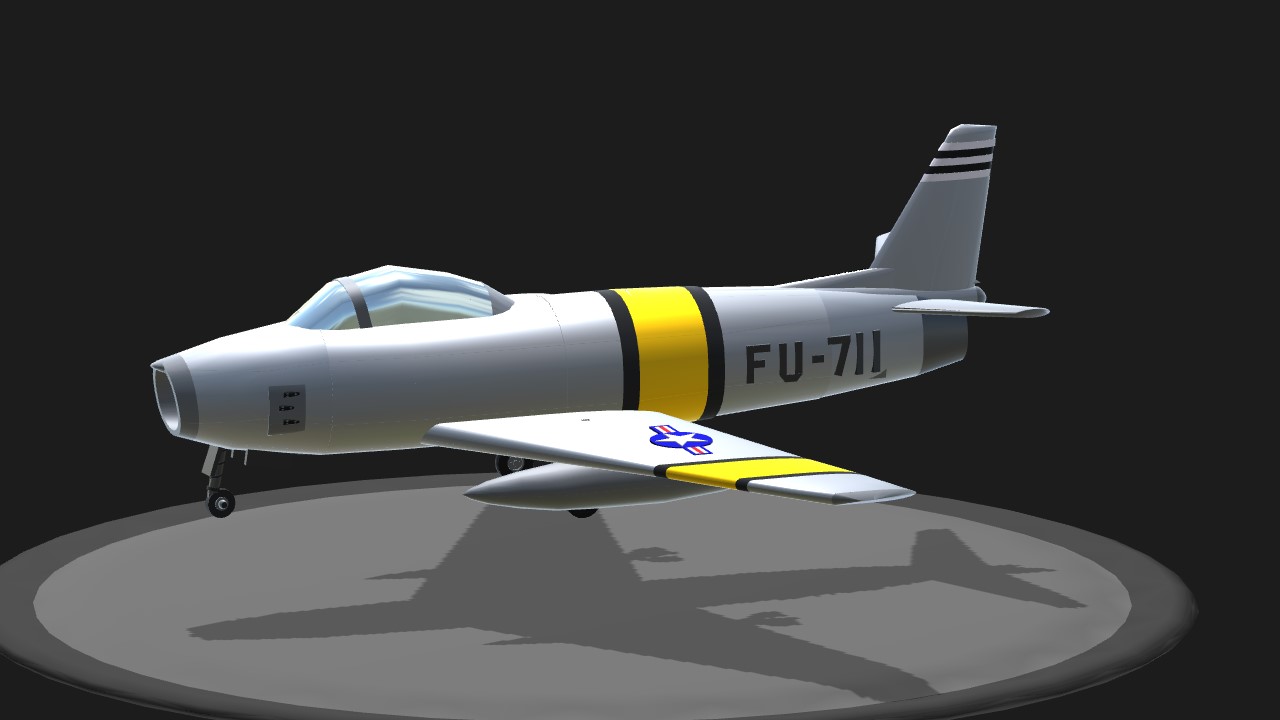
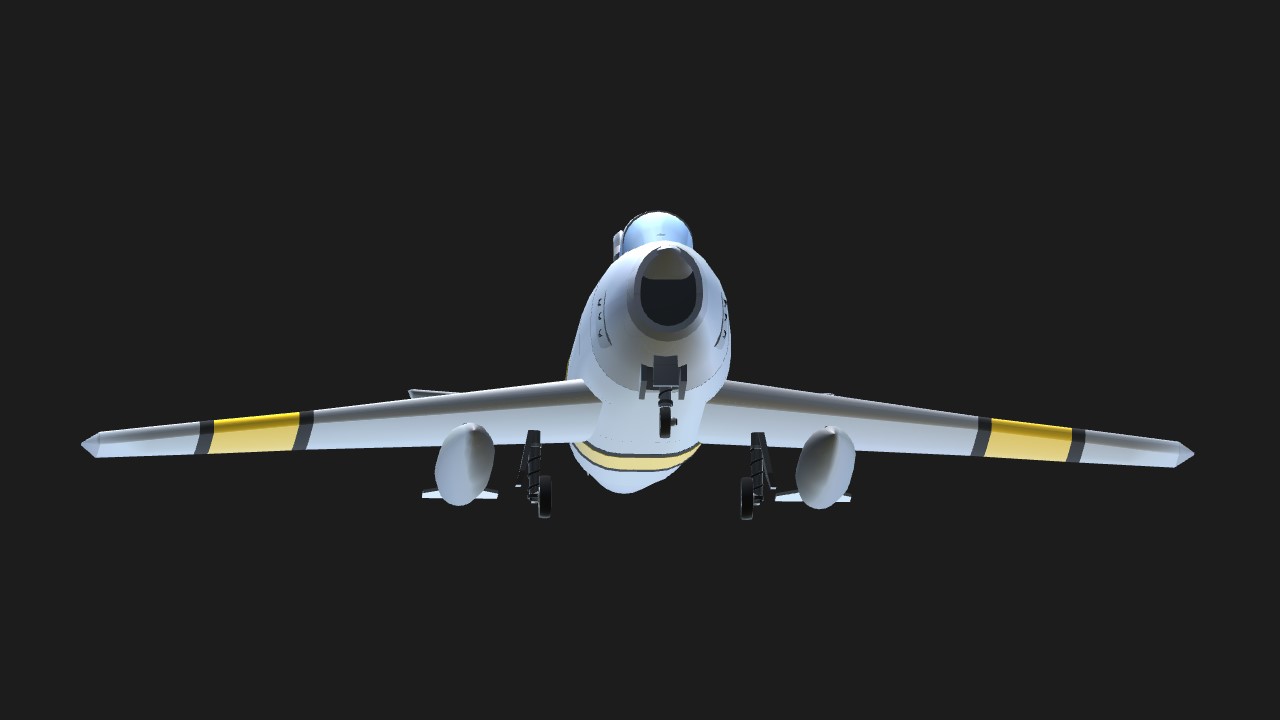
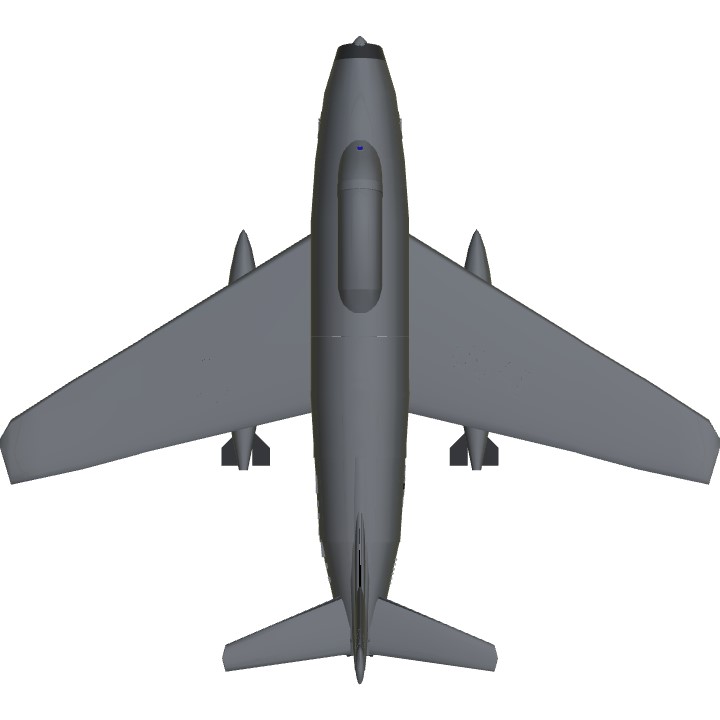
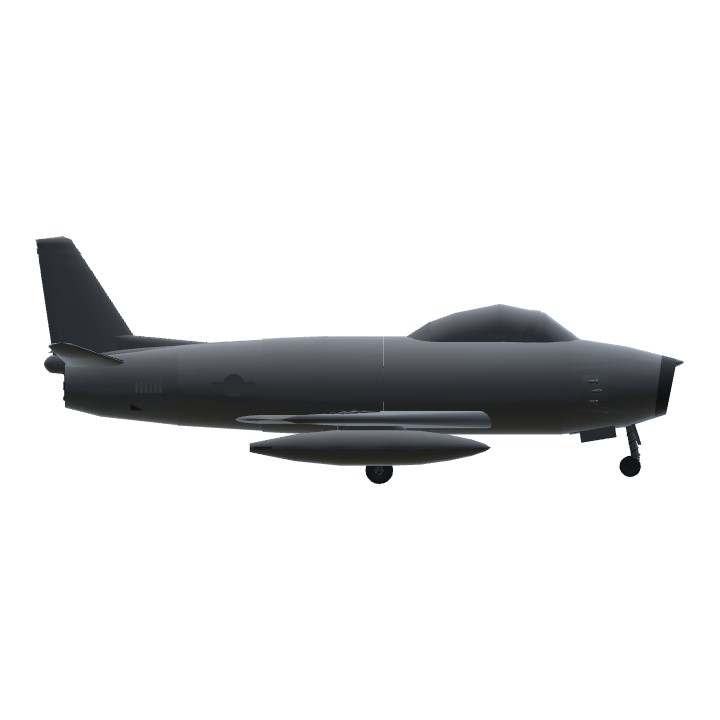
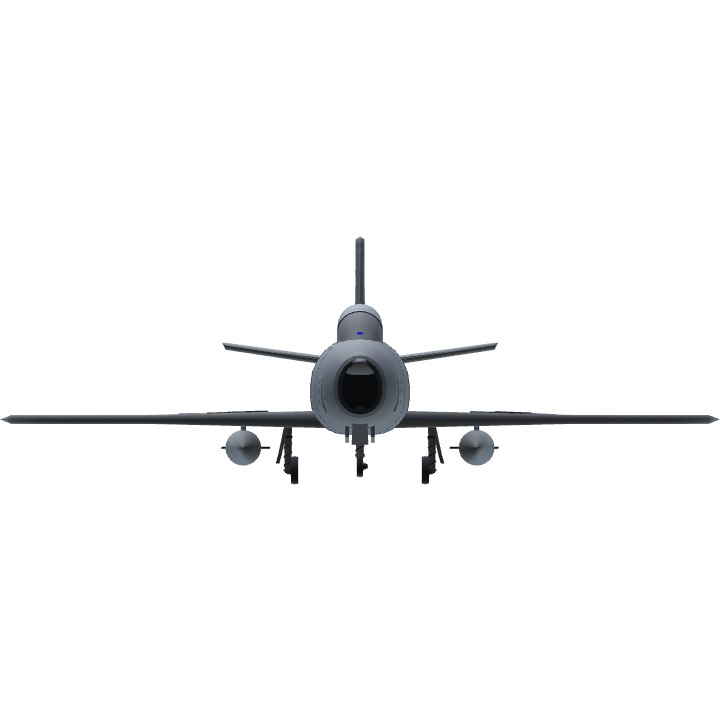
Requested Tags :
@DZJetsManufacturer
@SCP1471
@Lanc
Requested Tags :
@Kangy
@Noname918181
@UsualPioneer (you comment my forum teaser, meow tag you)
@ACEPILOT109 @BlackThuNDR @DameTheNewbie ahh yes, 600 Points nostalgic go brrrr
hmh? whdya mean salty? @RandomUser09
It is kinda salty.
@MrPilotMan you can dogfight the MiG-15 with this F-86 Sabre 😸
.
Dont forget to Upvote if you like it ;D
thx @MIAW26PERSIAN
here , click >>> MiG-19 @TheMrPilotMan
Ok didnt notice that :) @MIAW26PERSIAN
hmm i made a mig-15, check it out! and i can link you to my mig-19... hold on a sec... @TheMrPilotMan
Can you make the Mig 19 and the Mig 17? those are my favorite planes and if you do. thanks!
@AmaeroLLC
puas nya~ @ExpMC
BELOM PUAS?
;-; @Blizt
@MIAW26PERSIAN males :v
cepet upvot, pls lah bang @Blizt
Upvote'nt
@MIAW26PERSIAN lah, Catur
ngahaha anda lom upvot, upvot sono @Zatomika
sprite @Zatomika
Waterlemon
thx! @2005
😺😺😺 cool 😄😃😀 👍👍👍
:PogU: @JS01